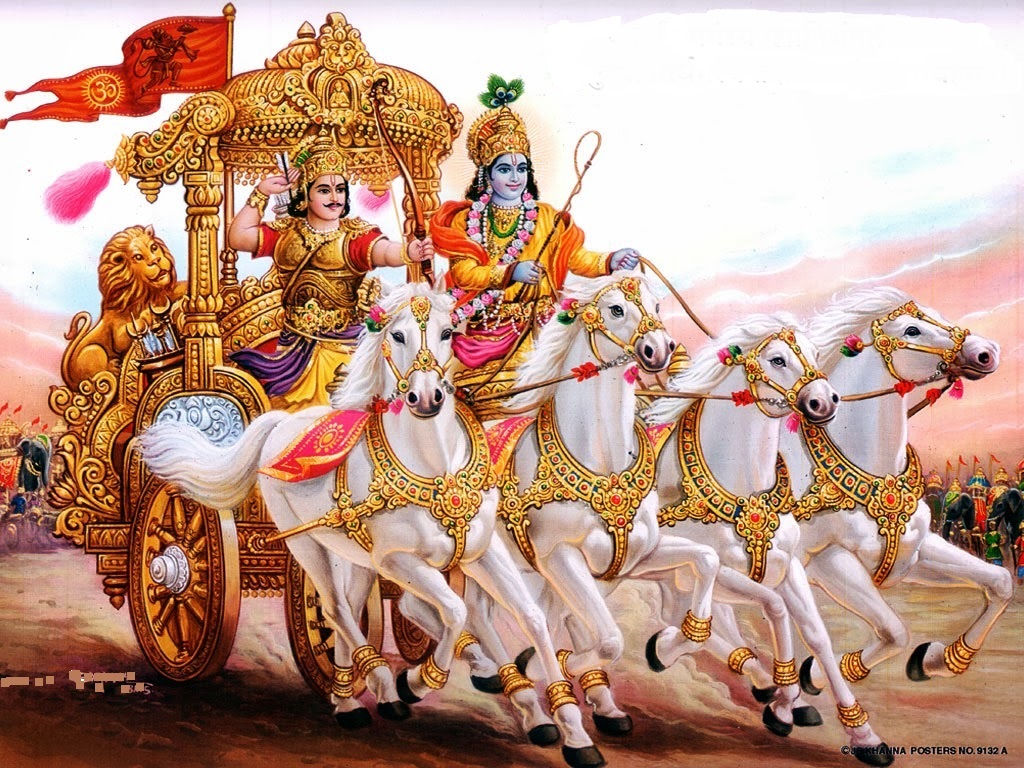The Spiritual Import of the Mahabharata and the Bhagavadgita : Ch-8. Part-7.
8. In Harmony with the Whole Universe :
Part-7.
There are many immediate causes.
Hydrogen, when combined with oxygen in a certain proportion makes water, but while hydrogen and oxygen are the immediate causes of water, they are not the ultimate causes, because a question be asked as to the cause of hydrogen, and so on.
In the same way, we require an ultimate cause, beyond which we cannot think.
A causeless cause has to be demanded—that is what we call the Creator.
It is a cosmological argument, as we call it in philosophy.
For this there is a Creator, and if the Creator is not to be there, we cannot explain this world.
Inasmuch as an explanation is necessary, and the mind cannot be quiet without receiving a logical answer to this question of the creation of the world, the Creator has to be accepted.
So the Teacher of the Bhagavadgita, who has taken this stand for the psychology of the student, says the world consists of five elements.
Bhumir apo’nalo vayuh kham mano buddhir eva ca, ahanakra itiyam me bhinna prakrtir astadha. Apareyam itas tv anyam prakrtim viddhi me param, jiva-bhutam maha-baho yayedam dharyate jagat.
Earth, water, fire, air and ether—these are the five gross elements which constitute the physical universe.
Beyond these five elements there is the psychic or the intellectual universe, corresponding to the mind, intellect and ego of the individual—manas, buddhi, and ahamkara—mind, intellect and ego.
These constitute the eightfold lower field called aparaprakriti, the lower matrix of things.
It is called lower because it is subject to transformation.
All the five elements change, and so do the mind, intellect and ego—they are all subject to transformation at different moments of time.
Swami Krishnananda
To be continued ....





Comments